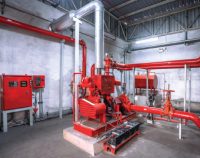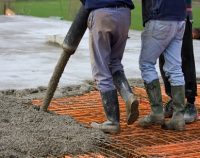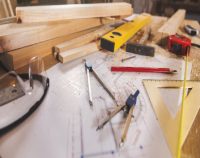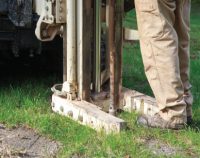Showing 361–380 of 778 results
Fire Protection System Design: 3 PDH
$18.00 Add to cartThis three (3) hour course overviews standards to design and build an environment for building occupants that is reasonably safe from fire and products of combustion as well as how to provide a reasonable level of building usability and property protection from the effects of fire and products of combustion.Instructor: Seth Grablow, PEThis three (3) hour course overviews standards to design and build an environment for building occupants that is reasonably safe from fire and products of combustion as well as how to provide a reasonable level of building usability and property protection from the effects of fire and products of combustion.
SPECIFIC KNOWLEDGE OR SKILL OBTAINED
This course teaches the following specific knowledge and skills:
- Become familiar and identify fire protection engineering design criteria
- Discuss the various building fire protection devices and installation standards
- Examine adequacy for water supply and the various methods and standards to implement sprinkler systems
- Understand fire extinguishing systems – the how, what, and where to install
- Identify fire alarm system design guidlines and installation standards
CERTIFICATE OF COMPLETION
You will be able to immediately print a certificate of completion after passing a 15 question multiple-choice quiz. The quiz can be retaken unlimited times until a passing grade of 70% or better is earned. This course satisfies three (3) continuing education hour (CEH)/professional development hour (PDH) of continuing education.
Preview CourseClick” Preview Course” to View Prior to PurchaseClick “Add to Cart” to Purchase and Access QuizFire Protection Systems: 3 PDH
$18.00 Add to cartIn this course the student will understand fire protection systems and fire protection system operations and will be able to familiarize themselves with the various systems and components including operations and maintenance/ inspection procedures.Instructor: Seth Grablow, PESPECIFIC KNOWLEDGE OR SKILL OBTAINED
This course teaches the following specific knowledge and skills:
- Explain the various types of sprinkler systems
- Explain the various types of sprinklers
- Discuss the types of automatic sprinklers
- Discuss sprinkler system detection and indicating devices
- Describe sprinkler system inspection and testing procedures
- Explain types of gaseous extinguishing systems
- Discuss dry chemical extinguishing systems
- Explain the procedures associated with boiler water treatment and cleaning
- Describe the procedures for cleaning boiler firesides and watersides
- Describe the procedures associated with boiler maintenance
CERTIFICATE OF COMPLETION
You will be able to immediately print a certificate of completion after passing a 15-question multiple-choice quiz. The quiz can be retaken unlimited times until a passing grade of 70% or better is earned. This course satisfies three (3) hours of professional development (PDH).
Preview CourseClick “Preview Course” to view prior to purchaseClick “Add to Cart” to purchaseFlorida Ethics for Professional Engineers: 1 CEH
$12.00 Add to cartFlorida Approved Course #0010039In this course, students will become familiar with the standards of professional behavior, focusing on adherence to the highest principles of ethical conduct. They will also apply these principles through the analysis of real-world case studies. *Approved Florida Ethics Course for February 28, 2027 renewal deadline.*Instructor: Seth Grablow, PE
-Approved Course for February 28, 2027 Renewal Deadline
-This course satisfies the one (1) hour ethics requirement
The primary objective of this course is to familiarize the student with the standards of professional behavior for adherence to the highest principles of ethical conduct as well as apply those principles in reviewing real case studies.SPECIFIC KNOWLEDGE OR SKILL OBTAINED
This course teaches the following specific knowledge and skills:
- The engineer’s duty to protect the public
- The engineer’s duty to make objective and truthful statements
- The engineer’s duty to limit practice to his or her field of competence
- The engineer’s duty to maintain client confidentiality
- The engineer’s responsibility to the profession
CERTIFICATE OF COMPLETION
You will be able to immediately print a certificate of completion after passing a 10 question multiple-choice quiz. The quiz can be retaken unlimited times until a passing grade of 70% or better is earned. This course satisfies 1 continuing education hour (CEH).
Preview CourseClick “Preview Course” to view prior to purchaseClick “Add to Cart” to purchaseFluid Flow: 4 PDH
$24.00 Add to cartFluid flow and practical fluid mechanics is essential to any engineer's knowledge base. This course will overview the basic principles of fluid flow including the three key attributes to solve all fluid problems. Bernoulli Equation will be discussed in detail to enable understanding of different types of energy in a fluid stream. Laminar and turbulent flow, head loss, and factors affecting head loss will also be dicussed in detail and explained with practical problems.Instructor: Seth Grablow, PEFluid flow and practical fluid mechanics is essential to any engineer's knowledge base. This course will overview the basic principles of fluid flow including the three key attributes to solve all fluid problems. Bernoulli Equation will be discussed in detail to enable understanding of different types of energy in a fluid stream. Laminar and turbulent flow, head loss, and factors affecting head loss will also be dicussed in detail and explained with practical problems.
SPECIFIC KNOWLEDGE OR SKILL OBTAINED
This course teaches the following specific knowledge and skills:
- Review of key principles
- Shear Stress in a fluid
- Conservation of Mass
- Conservation of Momentum
- Reynolds number
- Laminar versus turbulent flow
- Bernoulli Equation
- Major head losses
- Minor head losses
- System level analysis
CERTIFICATE OF COMPLETION
You will be able to immediately print a certificate of completion after passing a 15 question multiple-choice quiz. The quiz can be retaken unlimited times until a passing grade of 70% or better is earned. This course satisfies 4 professional development hours (PDH) of continuing education.
Preview CourseClick “Preview Course” to View Prior to PurchaseClick “Add to Cart” to Purchase and Access QuizForecasting Solar Radiation and Photovoltaic Power: 5 PDH
$30.00 Add to cartSolar resource forecasting is critical for the operation and management of solar power plants and electric grids. In this course the student will understand the basic concepts and various methods of solar irradiance forecasting as well as forecasting the power production of Photovoltaic (PV) power plants.Instructor: Juan Pesante, PESPECIFIC KNOWLEDGE OR SKILL OBTAINED
This course teaches the following specific knowledge and skills:
- Explain empirical and physical solar forecasting methods
- Explain statistical and machine learning methods
- Discuss forecasting the production of a PV power plant
- Discuss statistical error measures
- Explain probabilistic solar forecasts
CERTIFICATE OF COMPLETION
You will be able to immediately print a certificate of completion after passing a 20 question multiple-choice quiz. The quiz can be retaken unlimited times until a passing grade of 70% or better is earned. This course satisfies five (5) hours of professional development (PDH).
Preview CourseClick “Preview Course” to view prior to purchaseClick “Add to Cart” to purchaseFoundations in Expansive Soils: 6 PDH
$36.00 Add to cartThis course presents guidance and information for the geotechnical investigation necessary for the selection and design of foundations for heavy and light buildings constructed in expansive clay soil areas. The information in this course is generally applicable to many types of structures such as residences, warehouses, and multi-story buildings. Emphasis is given to the maintenance of an environment that encourages constant moisture conditions in the foundation soils during and following construction. Special attention must always be given to specific requirements of the structure such as limitations on allowable differential movement.Instructor: Raymond Bosek, PEThis course presents guidance and information for the geotechnical investigation necessary for the selection and design of foundations for heavy and light buildings constructed in expansive clay soil areas. The information in this course is generally applicable to many types of structures such as residences, warehouses, and multi-story buildings. Emphasis is given to the maintenance of an environment that encourages constant moisture conditions in the foundation soils during and following construction. Special attention must always be given to specific requirements of the structure such as limitations on allowable differential movement.
SPECIFIC KNOWLEDGE OR SKILL OBTAINED
This course teaches the following specific knowledge and skills:
- Guidelines of the geotechnical investigation and analysis
- Field exploration
- Laboratory investigations
- Methodology for prediction of volume changes
- Selection of the type of foundation
- Structural details of design procedures provided for reference
- Methods of minimizing foundation movement
- Construction techniques and inspection
Remedial repair of damaged structures
CERTIFICATE OF COMPLETION
You will be able to immediately print a certificate of completion after passing a 20 question multiple-choice quiz. The quiz can be retaken unlimited times until a passing grade of 70% or better is earned. This course satisfies 6 professional development hours (PDH) of continuing education.
Preview CourseClick “Preview Course” to View Prior to PurchaseClick “Add to Cart” to Purchase and Access QuizFundamentals of Biodiesel: 4 PDH
$24.00 Add to cartIn this online course a student will understand biodiesel and biodiesel blends and practical guidelines for using in place of standard diesel, this includes characteristics, storage and safety issues, and procedures for using in compression-ignition engines and boilers. Instructor: Seth Grablow, PESPECIFIC KNOWLEDGE OR SKILL OBTAINED
This course teaches the following specific knowledge and skills:
- Understand biodiesel and biodiesel blends
- Explain biodiesel benefits and attributes
- Discuss biodiesel blends and characteristics
- Explain safety, health, & environmental issues with biodiesel
- Understand storage and material compatibility
CERTIFICATE OF COMPLETION
You will be able to immediately print a certificate of completion after passing a twenty (20) question multiple-choice quiz. The quiz can be retaken unlimited times until a passing grade of 70% or better is earned. This course satisfies four (4) continuing education hours (CEH)/professional development hours (PDH) of continuing education.
Preview CourseClick” Preview Course” to View Prior to PurchaseClick “Add to Cart” to Purchase and Access QuizFundamentals of Fiber Optics: 3 PDH
$18.00 Add to cartThis online course is an introduction to concepts and theories of fiber optics and associated technologies. In this course you will learn about the history of fiber optics, its advantages & disadvantages, and the concepts of fiber optics including: the theory of light transmission through fiber optics, the structure of fiber optics, and properties of transmission.Instructor: Juan Pesante, PESPECIFIC KNOWLEDGE OR SKILL OBTAINED
This course teaches the following specific knowledge and skills:
- Understand the history of fiber optics
- Discuss basic fiber optics systems
- Understand the nature of light propagation and the electromagnetic theory of light
- Explain the properties of light reflection, refraction, diffusion, and absorption
- Explain the basic optical fiber material properties and how optical fibers transmit light
- Explain the ray and mode theories of light propagation along an optical fiber
- Discuss the processes of light attenuation and dispersion
- Understand the structure and components of fiber optic systems
CERTIFICATE OF COMPLETION
You will be able to immediately print a certificate of completion after passing a 15 question multiple-choice quiz. The quiz can be retaken unlimited times until a passing grade of 70% or better is earned. This course satisfies 3 professional development hours (PDH) of continuing education.
Preview CourseClick “Preview Course” to View Prior to PurchaseClick “Add to Cart” to Purchase and Access QuizFundamentals of Gas Turbine Engines: 5 PDH
$30.00 Add to cartThis course provides an overview of the development of gas turbines, operational theory, Brayton cycle, conditions and design limitations that affect performance, types of turbine engines and components utilized in a gas turbine engine.Instructor: Seth Grablow, PEConcepts for machines that harness power from heated air or water have been around since the 1600s. From this beginning, the gas turbine engine now is at the center of major industries including: aviation, naval propulsion, and power generation. This course provides an overview of the development of gas turbines, operational theory, Brayton cycle, conditions and design limitations that affect performance, types of turbine engines and components utilized in a gas turbine engine.
SPECIFIC KNOWLEDGE OR SKILL OBTAINED
This course teaches the following specific knowledge and skills:
- History of development of the gas turbine
- Basic gas turbine engine operation theory, Brayton Cycle
- Factor affecting engine performance
- Types of gas turbine engines
- Components of a gas turbine engine
- Gas turbine engine auxiliary systems
CERTIFICATE OF COMPLETION
You will be able to immediately print a certificate of completion after passing a 25 question multiple-choice quiz. The quiz can be retaken unlimited times until a passing grade of 70% or better is earned. This course satisfies 5 professional development hours (PDH) of continuing education.
Preview CourseClick “Preview Course” to View Prior to PurchaseClick “Add to Cart” to Purchase and Access QuizFundamentals of Metals: 5 PDH
$30.00 Add to cartThe course provides an understanding of the structure and properties of metals, stress mechanisms, failure modes and the characteristics determine their usefulness for a specific application. Often, materials are subject to variable forces (loads). The engineer calculates these forces to establish the service that can be expected and material scientists experiment to determine how materials deform (elongate, compress, and twist) or break as a function of applied load, time, temperature, and other conditions.Instructor: Seth Grablow, PEThe course provides an understanding of the structure and properties of metals, stress mechanisms, failure modes and the characteristics determine their usefulness for a specific application. Often, materials are subject to variable forces (loads). The engineer calculates these forces to establish the service that can be expected and material scientists experiment to determine how materials deform (elongate, compress, and twist) or break as a function of applied load, time, temperature, and other conditions.
SPECIFIC KNOWLEDGE OR SKILL OBTAINED
This course teaches the following specific knowledge and skills:
- Mechanical properties of metals
- Structure of metals and how those structures are affected by various processes
CERTIFICATE OF COMPLETION
You will be able to immediately print a certificate of completion after passing a 20 question multiple-choice quiz. The quiz can be retaken unlimited times until a passing grade of 70% or better is earned. This course satisfies 5 professional development hours (PDH) of continuing education.
Preview CourseClick “Preview Course” to View Prior to PurchaseClick “Add to Cart” to Purchase and Access QuizFundamentals of Pumps: 4 PDH
$24.00 Add to cartThis online course provides an overview of centrifugal and positive displacement pumps, pump components, protection, and operational considerations. Pumps serve in a wide range of applications, from industrial uses such as pumping oil or natural gas, to consumer uses in vehicles or decorative fountains. Knowledge of the different designs of pumps can be used when selecting them for use in a system.Instructor: Seth Grablow, PEThis online course provides an overview of centrifugal and positive displacement pumps, pump components, protection, and operational considerations. Pumps serve in a wide range of applications, from industrial uses such as pumping oil or natural gas, to consumer uses in vehicles or decorative fountains. Knowledge of the different designs of pumps can be used when selecting them for use in a system.SPECIFIC KNOWLEDGE OR SKILL OBTAINED
This course teaches the following specific knowledge and skills:
- Centrifugal Pump Design and Classification
- Pump Operation and Protection
- Cavitation Prevention
- Positive Displacement Pump Design and Classification
CERTIFICATE OF COMPLETION
You will be able to immediately print a certificate of completion after passing a 15 question multiple-choice quiz. The quiz can be retaken unlimited times until a passing grade of 70% or better is earned. This course satisfies 4 professional development hours (PDH) of continuing education.
Preview CourseClick “Preview Course” to View Prior to PurchaseClick “Add to Cart” to Purchase and Access QuizFundamentals of Valves: 4 PDH
$24.00 Add to cartValves are a ubiquitous feature in many industrail facilities. As Valves make up the most common single piece of equipment found in industrial facilities familiarity with valves is useful practical knowledge. This course will provide an overview of the common components of valves, types of valves usage, design considerations, and actuation methods.Instructor: Seth Grablow, PEValves are a ubiquitous feature in many industrail facilities. As Valves make up the most common single piece of equipment found in industrial facilities familiarity with valves is useful practical knowledge. This course will provide an overview of the common components of valves, types of valves usage, design considerations, and actuation methods.
SPECIFIC KNOWLEDGE OR SKILL OBTAINED
This course teaches the following specific knowledge and skills:
- Valve Functions
- Basic Parts of Valves
- Different Types of Values (Usage and Design)
- General Design Considerations when using valves
- Types of Valve Actuators
CERTIFICATE OF COMPLETION
You will be able to immediately print a certificate of completion after passing a 25 question multiple-choice quiz. The quiz can be retaken unlimited times until a passing grade of 70% or better is earned. This course satisfies 4 professional development hours (PDH) of continuing education.
Preview CourseClick “Preview Course” to View Prior to PurchaseClick “Add to Cart” to Purchase and Access QuizFundamentals of Wood Construction: 3 PDH
$18.00 Add to cartIn this course the student will understand the basics of wood in construction including common woodworking techniques for construction.This course is designed to bridge the gap in knowledge between engineers & building trade professionals.Instructor: Raymond Bosek, PESPECIFIC KNOWLEDGE OR SKILL OBTAINED
This course teaches the following specific knowledge and skills:
- Describe the types, sources, uses, and characteristics of the common woods used on various construction projects
- Explain the various methods and joints associated with woodworking
- Identify the different types of fastening devices
- Identify common trade terms
CERTIFICATE OF COMPLETION
You will be able to immediately print a certificate of completion after passing a 15 question multiple-choice quiz. The quiz can be retaken unlimited times until a passing grade of 70% or better is earned. This course satisfies 3 professional development hours (PDH) of continuing education.
Preview CourseClick “Preview Course” to View Prior to PurchaseClick “Add to Cart” to Purchase and Access QuizGeorgia – Laws, Rules, & Ethics for Professional Engineers: 3 PDH
$18.00 Add to cartIn this course the student will study the Georgia State Board of Registration for Professional Engineers and Land Surveyors, Laws and Rules, including Professional Engineering Ethics. A Twenty-five question quiz will test his or her understanding of the subject.Instructor: Seth Grablow, PEIn this course the professional engineering student will study the Georgia State Board of Registration for Professional Engineers and Land Surveyors Laws & Rules, including Professional Engineering Ethics. A Twenty-five question quiz will test his or her understanding of the subject.
SPECIFIC KNOWLEDGE OR SKILL OBTAINED
This course teaches the following specific knowledge and skills:
- The engineer's guidelines for practicing within Georgia's laws and rules
- The engineer’s duty to protect the public
- The engineer’s duty to make objective and truthful statements
- The engineer’s duty to limit practice to his or her field of competence
- The engineer’s duty to maintain client confidentiality
- The engineer’s responsibility to the profession
CERTIFICATE OF COMPLETION
You will be able to immediately print a certificate of completion after passing a 25 question multiple-choice quiz. The quiz can be retaken unlimited times until a passing grade of 70% or better is earned. This course satisfies 3 professional development hours (PDH) of continuing education.
Preview CourseClick” Preview Course” to View Prior to PurchaseClick “Add to Cart” to Purchase and Access QuizGeotechnical Subsurface Exploration for Roadways: 5 PDH
$30.00 Add to cartIn this course the student will understand the essentials of subsurface explorations for roadways with a comprehensive overview including site preparation, sampling methods, types of testing and methods, as well as standard guidelines and recommendations.Instructor: Raymond Bosek, PESPECIFIC KNOWLEDGE OR SKILL OBTAINED
This course teaches the following specific knowledge and skills:
- Discuss preparing for subsurface explorations
- Explain field reconnaissance and setting-up a exploration program
- Discuss sampling techniques and tools
- Explain various tests in addition to the standard penetration test (SPT)
- Understand guidelines for minimum exploration
CERTIFICATE OF COMPLETION
You will be able to immediately print a certificate of completion after passing a 20 question multiple-choice quiz. The quiz can be retaken unlimited times until a passing grade of 70% or better is earned. This course satisfies five (5) hours of professional development (PDH).
Preview CourseClick “Preview Course” to view prior to purchaseClick “Add to Cart” to purchaseGood Business Practices: 2 PDH
$12.00 Add to cartIn this course the student will understand the basics of operating a small engineering contracting business. This course is broken into three informational lessons that discuss the following: the legal structures of businesses, financial management, & time management.Instructor: Raymond Bosek, PESPECIFIC KNOWLEDGE OR SKILL OBTAINED
This course teaches the following specific knowledge and skills:
- Learn about the different types of business structures and find the one best suited for your business
- Explain the concept of time management and why is it important to your success
- Learn and apply time management tools & techniques to increase your time efficiency
- Explain the concept of financial management and why it is important to a small business
- Understand the importance and use of budgeting, bookkeeping, cash flow analysis, and profit & loss statements
CERTIFICATE OF COMPLETION
You will be able to immediately print a certificate of completion after passing a 20 question multiple-choice quiz. The quiz can be retaken unlimited times until a passing grade of 70% or better is earned. This course satisfies two (2) professional development hours (PDH) of continuing education.
Preview CourseClick “Preview Course” to View Prior to PurchaseClick “Add to Cart” to Purchase and Access QuizGravel Road Construction: 4 PDH
$24.00 Add to cartIt is estimated that over a third of the 4.09 million miles of roadway in the United States are not paved. These are typically unpaved gravel or dirt roads, and they’re mostly located throughout rural areas and communities where the volume of traffic is so low that paving and maintaining a paved road is not economically feasible. In this course the student will understand basic concepts in designing and maintaining gravel surfaced roads and essential tips to ensure lasting performance.Instructor: Raymond Bosek, PESPECIFIC KNOWLEDGE OR SKILL OBTAINED
This course teaches the following specific knowledge and skills:
- Explain gravel roadways routine maintenance and rehabilitation
- Discuss drainage and its importance
- Describe surface gravel types
- Discuss dust control and stabilization
- Recognize innovations and recent trends
- Explain construction guidelines and gradation determination
- Explain gravel road project quantity calculations
- Discuss gravel deterioration and when to pave
CERTIFICATE OF COMPLETION
You will be able to immediately print a certificate of completion after passing a 20 question multiple-choice quiz. The quiz can be retaken unlimited times until a passing grade of 70% or better is earned. This course satisfies four (4) hours of professional development (PDH).
Preview CourseClick “Preview Course” to view prior to purchaseClick “Add to Cart” to purchaseGuide to Government Contracting: 2 PDH
$12.00 Add to cartThis course provides steps for a small business to begin seeking federal government contract work. It overviews the essential process of a small business seeking and applying to government opportunities. It includes an informative step by step for a business to register, highlights all available resources to discover opportunities, points of contact in Wisconsin to assist businesses through the process, and discusses and reviews set-asides to give a business a competing advantage.Instructor: Raymond Bosek, PEThis course provides steps for a small business to begin seeking federal government contract work. It overviews the essential process of a small business seeking and applying to government opportunities. It includes an informative step by step for a business to register, highlights all available resources to discover opportunities, points of contact in Wisconsin to assist businesses through the process, and discusses and reviews set-asides to give a business a competing advantage.
SPECIFIC KNOWLEDGE OR SKILL OBTAINED
This course teaches the following specific knowledge and skills:
- Identify the basic guidelines of federal government contracting
- Understand small business qualifications and methods to verify your business
- Describe the four steps required to register for government contracting
- Learn how to find and research government contracting & subcontracting opportunities using the available tools and resources
- Identify points of contact(POC)s which can provide assistance to small businesses for government contracting and subcontracting opportunities
- Review the small business set-asides and sole-course programs
- Identify the government contracting regulations and what a small business should do immediately
CERTIFICATE OF COMPLETION
You will be able to immediately print a certificate of completion after passing a twenty (20) question multiple-choice quiz. The quiz can be retaken unlimited times until a passing grade of 70% or better is earned. This course satisfies two (2) continuing education hour (CEH)/professional development hour (PDH) of continuing education.
Preview CourseClick “Preview Course” to View Prior to PurchaseClick “Add to Cart” to Purchase and Access QuizHazardous Waste Identification: 2 PDH
$12.00 Add to cartThis course covers hazardous waste regulated by the EPA under the Resource Conservation and Recovery Act (RCRA), starting with determining whether what waste is considered a solid waste according to the RCRA regulations and moving on to determining if it fits one of the RCRA requirements for being a hazardous waste.Instructor: Raymond Bosek, PEThis course covers hazardous waste regulated by the EPA under the Resource Conservation and Recovery Act (RCRA), starting with determining whether what waste is considered a solid waste according to the RCRA regulations and moving on to determining if it fits one of the RCRA requirements for being a hazardous waste.
SPECIFIC KNOWLEDGE OR SKILL OBTAINED
This course teaches the following specific knowledge and skills:
- Fundamentals of the hazardous waste identification process
- Definition of hazardous waste & solid waste as used by RCRA
- How to identify listed hazardous wastes and their characteristics
- Interpretation of the mixture and 'derived-from' rules
- Interpretation of the contained-in policy
CERTIFICATE OF COMPLETION
You will be able to immediately print a certificate of completion after passing a 16 question multiple-choice quiz. The quiz can be retaken unlimited times until a passing grade of 70% or better is earned. This course satisfies 2 professional development hours (PDH) of continuing education.
Preview CourseClick “Preview Course” to View Prior to PurchaseClick “Add to Cart” to Purchase and Access QuizHeat Exchangers Fundamentals: 4 PDH
$24.00 Add to cartHeat Exchangers are a vital part to many industrial and consumer systems. They can be found anywhere from power plants and breweries to cars and HVAC systems. Heat Exchangers are vital for transferring heat from or between fluids. Knowledge of the fundamentals behind the use and design is vital to anyone involved with mechanical systems. This course reviews the practical applications of thermodynamics, heat transfer, and fluid flow principles covered in other PDH courses.Instructor: Seth Grablow, PEHeat Exchangers are a vital part to many industrial and consumer systems. They can be found anywhere from power plants and breweries to cars and HVAC systems. Heat Exchangers are vital for transferring heat from or between fluids. Knowledge of the fundamentals behind the use and design is vital to anyone involved with mechanical systems. This course reviews the practical applications of thermodynamics, heat transfer, and fluid flow principles covered in other PDH courses.
SPECIFIC KNOWLEDGE OR SKILL OBTAINED
This course teaches the following specific knowledge and skills:
- Methods of Constructing Heat Exchangers
- Types of Heat Exchangers
- Review Rate of Heat Transfer equations
- Applications of Heat Exchangers
CERTIFICATE OF COMPLETION
You will be able to immediately print a certificate of completion after passing a 15 question multiple-choice quiz. The quiz can be retaken unlimited times until a passing grade of 70% or better is earned. This course satisfies 4 professional development hours (PDH) of continuing education.
Preview CourseClick “Preview Course” to View Prior to PurchaseClick “Add to Cart” to Purchase and Access Quiz




















